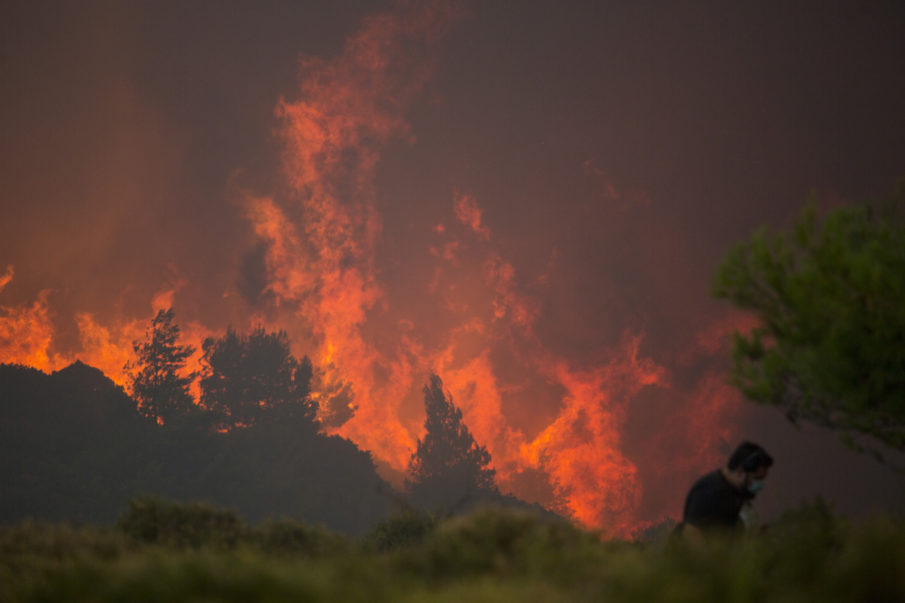On July 23, a fire started on Mount Penteli in Attica. Its outcome was deadly, with 90 dead so far, 187 injured, and according to the official figures, another 23 are missing.
Greece is a country where wildfires are common; long, dry summers combined with high winds in late summer along with the evergreen trees, are a recipe for disaster.
As far as conditions are concerned — whatever could go wrong did: winds up to 100 km/h drove the fire directly onto two settlements, Neos Voutzas and Mati. The fire moved with great speed; from its starting point on Mount Penteli, it crossed the nearly four kilometers toward the coast in about one hour.
There have been wildfires in the area in the past; what stopped them from entering the settlements up until now was the “blackline” of Marathon Highway, a four-lane road. This time, the high winds allowed the fire to cross the street, with no other obstacles in its way. The people living in the area had known for decades how insufficient this was and the mantra each summer was, “Let’s hope it will not cross the highway.” As Mati is a settlement with few beaches and most of its coast consists of 7-8 meters cliffs with jagged rocks at the bottom, the people there knew they would have limited avenues of escape.
The stories from the fire are horrendous. More than two dozen people died in a field all huddled together. A woman lost her whole family; husband, eleven-year-old son, and thirteen-year-old daughter — the little girl tried to escape but fell from a cliff. Two people drowned when the boat that rescued them capsized. A fireman was working to extinguish the fires without knowing that his six-month-old son had died, and his wife died a few days later from the burns she suffered. A man trapped in his car with his family had only enough time to help his two-year-old son; his wife, unfortunately, didn’t make it out of the car.
Survivors speak of an inferno: the temperatures were so high that the aluminum rims on cars melted, smoke so thick that even people that made it to the relative safety of the beaches had to swim further out in order to survive — many treaded water for hours.
There are also stories of heroism: fishers came to the aid of victims, saving many; professional and volunteer firefighters did go above and beyond in their attempt to save lives and property, with people going three days straight with minimal sleep — and in some cases, without any sleep at all.
To say that Greece is in a state of shock is an understatement. All this happened 25 km from downtown Athens; a popular spot, as is most of Attica’s coastline, for a weekend off or just for a swim, as it is less than an hour drive from the center. This tragedy has hit hard right in the heart of Greece both metaphorically and literally, and the poor handling of the aftermath by the government could mean rapid political developments.
Featured image: A man walks in front of huge blaze during a forest fire near the village of Varnava, north of Athens, on Monday, Aug. 14, 2017. A large wildfire north of Athens is threatening homes as it sweeps through the pine forest for a second day, uncontained due to high winds. | AP Photo/Petros Giannakouris
Already have an account? Sign In
Two ways to continue to read this article.
Subscribe
$1.99
every 4 weeks
- Unlimited access to all articles
- Support independent journalism
- Ad-free reading experience
Subscribe Now
Recurring Monthly. Cancel Anytime.











COMMENTS